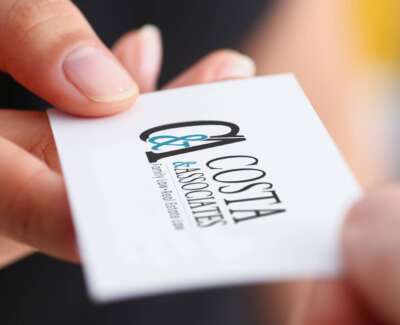CALL FOR A CONSULTATION
Why Go Collaborative?
Divorce is an emotional journey that is also a complicated legal process. You naturally want to make the experience less harrowing rather than more. These challenging moments are where the collaborative divorce process comes in. A collaborative divorce is one in which both divorcing spouses commit to the process and put their shoulders into hammering out divorce terms that they are both willing to sign off on, helping to ensure that they won’t need the court to intervene in the matter. The process most often involves neutral professionals that together with the attorneys help the spouses with understanding financial information as well as unique dynamics of the family. If you’re facing a divorce, the collaborative approach may be a great option, and an experienced Florida collaborative divorce attorney can help.
The Collaborative Divorce Process Overview
In a collaborative divorce, both you and your divorcing spouse, along with your respective collaborative divorce attorneys, will both agree upfront to bypass litigation and to settle all the unresolved divorce terms outside of the courtroom. It also is a manner in which to keep all matters confidential and out of the public eye and out of the public records. As such, both sides are required to sign off on the collaborative agreement and to adhere to its rules until the divorce is finalized. If either you or your soon-to-be-ex attempts to litigate even one of the terms, that spouse’s attorney will be required to withdraw from the case. In other words, a collaborative divorce represents a commitment to negotiating divorce terms with one another in good faith.

Collaborative Principles and How the Process Works
The collaborative divorce process is intended to be transparent in an attempt to facilitate a divorce landscape in which both spouses can negotiate on an even playing field. It doesn’t mean that you have to be best friends or even that you have to necessarily be on speaking terms. However, both commit to play fair. Throughout the collaborative divorce process, you, your divorcing spouse, and your respective attorneys will negotiate back and forth, recognizing that you have the information you need to make well-informed decisions and understanding that you’re moving forward toward settlements.
The Traditional Divorce Process Overview and Principles
A traditional divorce is a litigious divorce. The process requires that all be petitioned and decided by the courts, the process is open to the public to read and see all that is filed with the court, the decisions are made by the court, the parties are adversarial and mostly the parties are in search of and on the hunt for whatever is there for their taking. The most intimate and serious matters that will affect everyone involved post-divorce, subject themselves to the mercy of the court to make the decisions. This is a lengthy and expensive process and is often referred to as a risky option because the outcome is unknown, there are no guarantees, and the process is full of uncertainties.
No Matter the Process Used, Divorces all Address Issues Including:
- Jurisdiction & Venue – does the court have power to rule and is it the correct court
- The division of marital property and marital debt
- Deciding what is marital and non-marital property and marital debt
- What the value of a certain asset or property is and as of what date
- Whether real, personal or business properties are to be divided, sold, or distributed
- If Spousal support (also known as alimony) is to be paid, and if so how much and for how long.
- Your child custody arrangements
- Designate Parental Responsibility & Timesharing
- Child support and other matters
- Discuss Attorney Fees & Costs
How the Process Works
If your divorce goes to court, it is a far more formal matter. You and your divorcing spouse’s respective attorneys will each present your respective sides, and the presiding judge will make the necessary determinations.
The Members Involved
The members involved in a litigated divorce generally include:
- You and your divorce attorney
- Your divorcing spouse and their divorce attorney, if any
- The presiding Judge
- The General Magistrate, if referred to by the judge
- A Hearing Officer, if referred to by the judge
- Any witnesses
- Any experts which often would be “competing” experts each side hiring and using their own experts which then leads to a battle of the experts, such as business evaluators, financial experts, appraisers, and psychologists.
- A Guardian Ad litem, if ordered
- A Parent Coordinator, if ordered
- Therapist, family and child evaluators, if ordered.
Learn More About the Collaborative Process
As proud members of the Collaborative Family Law Initiative, please follow the link below for more online resources regarding the Collaborative Process:

Reach out to an Experienced Florida Collaborative Divorce Attorney Today
If you are facing a divorce, the accomplished collaborative divorce attorneys at Costa & Associates have the experience, compassion, and legal insight for which you are looking. To learn more, please don’t wait to contact or call us at 305-827-0100 to schedule your consultation today.
